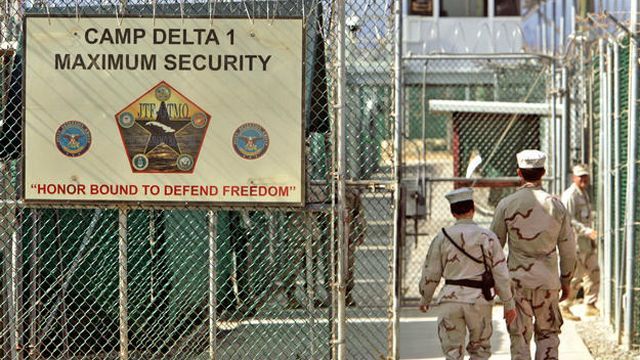
https://youtu.be/TKoctiLV7fk?t=5
Today, President Obama announced his plan to close the prison facility at Guantanamo Bay once and for all — saying that keeping the prison open undermines our national security and stains our broader record on upholding the highest standards of rule of law. He made the case for why it’s time to change the course on Guantanamo:
«For many years, it has been clear that the detention facility at Guantanamo Bay does not advance our national security—it undermines it. It’s counterproductive to our fight against terrorists, who use it as propaganda in their efforts to recruit. It drains military resources, with nearly $450 million spent last year alone to keep it running and more than $200 million in additional costs needed to keep it open going forward. Guantanamo harms our partnerships with allies and other countries whose cooperation we need against terrorism.»
President Obama, February 23, 2016
In one of President Obama’s first acts as President, he took action to begin closing the prison facility. Since he took office, we’ve transferred 147 of its detainees, each under new, significant restrictions to keep them from returning to the battlefield.
Of the nearly 800 detainees once held at Guantanamo Bay, now just 91 remain.
Today, the Defense Department submitted a plan to Congress on closing the prison facility and dealing with the remaining group of detainees.
1. «We’ll continue to securely and responsibly transfer to other countries the 35 detainees already approved for transfer. This process involves extensive and careful coordination across our federal government to ensure that our national security interests are met when an individual is transferred to another country. We insist, for example, that foreign countries institute strong security measures.»
2. «We’ll accelerate the periodic reviews of remaining detainees to determine whether their continued detention is necessary. Our review board, including representatives from across government, will look at all relevant information, including current intelligence. If certain detainees no longer pose a continuing significant threat, they may be eligible for transfer to another country.»
3. «We’ll continue to use all legal tools to deal with the remaining detainees still held under law of war detention. Currently, 10 detainees are in some stage of the military commissions process—a process we reformed in my first year in office with bipartisan support from Congress. Still, these commissions are very costly and have resulted in years without a resolution. We’re therefore outlining additional changes to improve these commissions, which would require Congressional action.»
4. «We’re going to work with Congress to find a secure location in the United States to hold remaining detainees. These are detainees who are subject to military commissions, as well as those who cannot yet be transferred to other countries or who we’ve determined must continue to be detained because they pose a continuing significant threat. We are not identifying a specific facility today.»
Read the full plan from the Department of Defense.
The White House February 23, 2016



Expositores: Oscar Vidarte (PUCP) Fernando González Vigil (Universidad del Pacífico) Inscripciones aquí. Leer más
Una retrospectiva para entender los próximos cuatro años. Leer más
En la conferencia se hará una presentación de los temas más relevantes del proceso de negociación se llevó a cabo desde el 2012, así como del acuerdo de paz firmado entre el Gobierno colombiano y la guerrilla de las FARC a finales del 2016. Se analizarán los desafíos y las... Leer más
El Observatorio de las Relaciones Peruano-Norteamericanas (ORPN) de la Universidad del Pacífico es un programa encargado de analizar y difundir información relevante sobre la situación política, económica y social de Estados Unidos y analizar, desde una perspectiva multidisciplinaria, su efecto en las relaciones bilaterales con el Perú.
© 2026 Universidad del Pacífico - Departamento Académico de Humanidades. Todos los derechos reservados.

